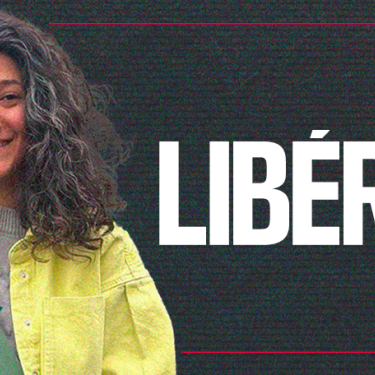RSF fears that two newly freed Iranian women journalists could be jailed again

Reporters Without Borders (RSF) calls for an end to the judicial harassment of two iconic Iranian women journalists, Niloofar Hamedi and Elaheh Mohammadi, who were temporarily released on bail on 14 January after 15 months in prison but risk reincarceration for appearing in photos without hijabs. They must be freed definitively and unconditionally, RSF says.
The two journalists, Niloofar Hamedi and Elaheh Mohammadi, were already facing the possibility of reimprisonment because they were freed on the equivalent of 185,000 euros in bail, as well as a ban on leaving Iran, pending the outcome of their appeals against the long jail sentences they received for covering Kurdish student Mahsa Amini’s death in police custody in September 2022.
The joy that greeted their provisional release did not last long. The next day, 15 January, the judicial authorities announced their intention to prosecute Hamedi and Mohammadi for appearing in public without hijabs, Agence France-Presse reported. Photos of the two journalists standing together outside the prison, without the mandatory hijabs, had circulated on social media on the evening of 14 January.
“After months of campaigning for their release, we were relieved to see Niloofar Hamedi and Elaheh Mohammadi smiling outside the walls of Evin prison. But we barely had time to express our relief before the authorities brandished a new threat of imprisonment. We call for the definitive and unconditional release of these two journalists and an end to the judicial harassment to which they have been subjected.
Threat of reimprisonment
After already spending 13 months in prison, the two journalists were sentenced by the 15th chamber of Tehran’s revolutionary court on 22 October 2023, at the end of a trial described as a “sham” by RSF. The court sentenced Mohammadi to six years in prison on a charge of “collaborating with the hostile government of the United States” and Hamedi to seven years in prison on the same charge.
The court also sentenced both to five years for “conspiring and colluding to commit a crime against national security” and one year for “propaganda against the Islamic Republic.” But, under Iran’s Islamic penal code, they must serve only the longest of the three sentences, the six-year one for Mohammadi and the seven-year one for Hamedi. Their lawyers filed an appeal but no date has so far been set for a hearing.
The Tasnim news agency said they “will stay out of prison until the appeal court takes a decision.” But provisional releases of journalists are often fragile. Many have been reimprisoned again and again on the least pretext.
Wave of arrests
At least 85 journalists were arrested for covering the huge wave of protests triggered by Mahsa Amini’s death in police custody on 16 September 2022 after her arrest for failing to comply with hijab regulations, and Hamedi and Mohammadi were among the first to cover the story.
A reporter for the newspaper Shargh Daily, Hamedi helped break the story by posting a photo of Amini’s family at the hospital to which Amini was taken shortly before her death. Mohammadi, a reporter for Ham Mihan, was the only journalist to cover Amini’s funeral in Saqqez, in Iranian Kurdistan. Hamedi and Mohammadi were arrested on 22 and 29 September respectively. RSF cited the judicial harassment of these two women journalists in its presentation on 18 December to the UN fact-finding mission to Iran.
Four outspoken women journalists are still imprisoned in Iran. They are Vida Rabbani, Saeedeh Shafiei, Nasim Sultan Beigi and Narges Mohammadi, who was awarded the 2023 Nobel Peace Prize and who continues to be persecuted in prison for speaking out in defence of her fellow women detainees.
